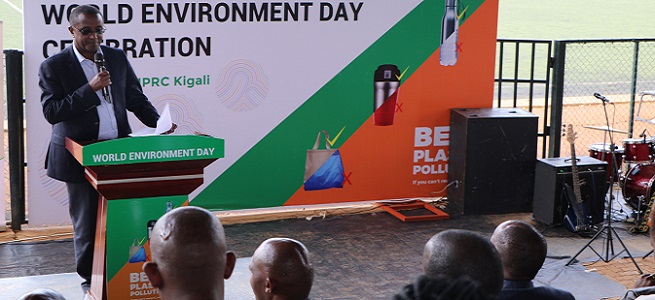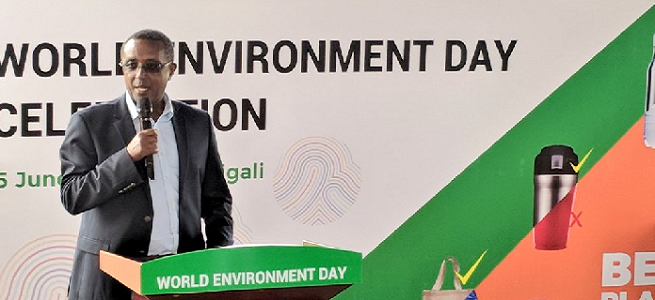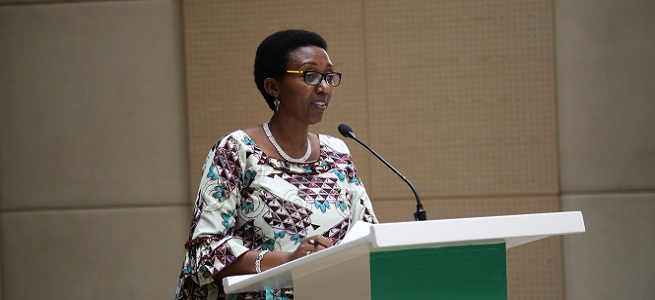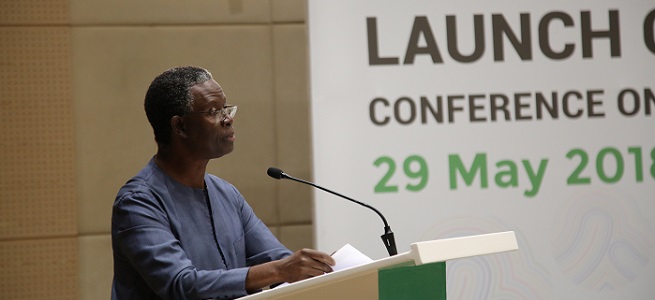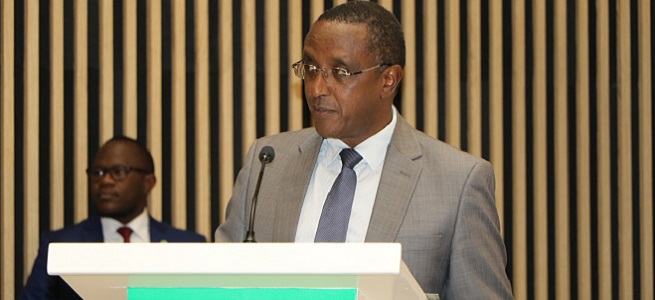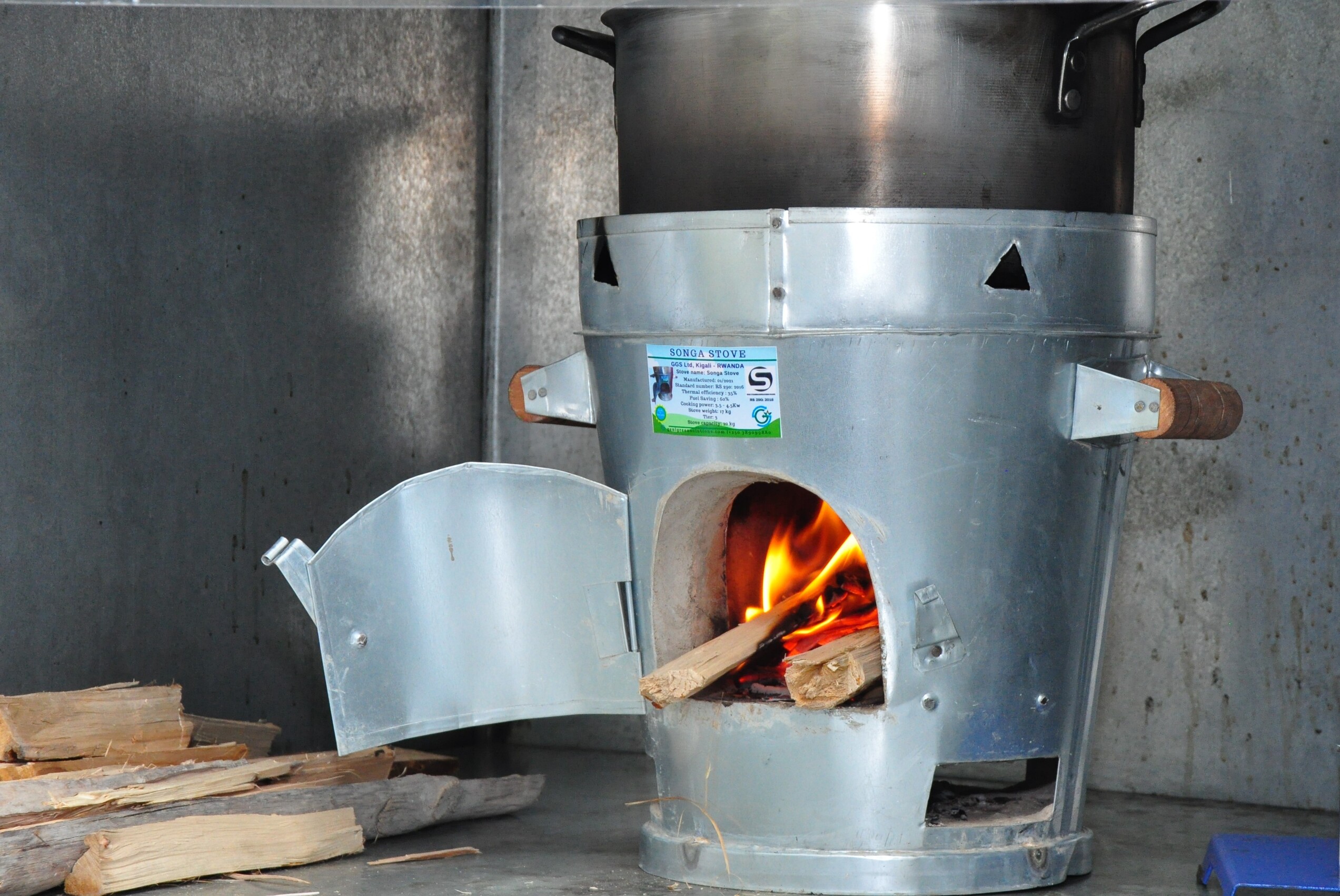
LDCF3 Project’s Improved Cookstoves: A Dual Solution for Climate Change and Human Health
In a ground-breaking move towards sustainable living, the Rwanda Environment Management Authority (REMA) is making significant strides in the fight against climate change while simultaneously improving human health. The distribution of improved cookstoves through the Ecosystem/Landscape Approach to Climate Proof the Rural Settlement Programme of Rwanda, also known as LDCF3 Project is proving to be a pivotal initiative with far-reaching benefits for both the environment and local communities.
Climate change and its associated impacts have posed a growing threat to communities worldwide, and Rwanda is no exception. One of the key contributors to environmental degradation has been the traditional cooking methods involving open fires and inefficient stoves.
The LDCF3 Project – being implemented by REMA in partnership with Rwanda Housing Authority, Meteo Rwanda and the Districts of Gakenke and Kirehe with support from the Global Environment Facility (GEF) through the United Nations Development Programme (UNDP) – seeks to address this challenge by providing households with technologically advanced cookstoves designed to reduce environmental impact.
The improved cookstoves distributed by REMA are equipped with enhanced combustion technology that significantly reduces the emission of greenhouse gases and pollutants.
"Receiving the improved cookstove through the LDCF3 Project has been a game-changer for our family. Not only does it cook our meals faster and with less fuel, but it has transformed the air we breathe. My children and I no longer inhale harmful smoke daily, and I feel a sense of relief knowing that our health is no longer compromised. Thanks to REMA and the LDCF3 Project for this positive change in our lives!" said Claudine Mukamisha, a resident in Kirehe District.
By promoting cleaner burning, these stoves contribute to a substantial decrease in carbon emissions, mitigating the adverse effects of climate change. The reduction in the demand for firewood or charcoal, a consequence of the improved efficiency of these stoves, also plays a critical role in curbing deforestation and preserving precious ecosystems.
"The improved cookstove provided by the LDCF3 Project is a beacon of hope for our environment. Before, we relied heavily on firewood for cooking, contributing to deforestation. Now, with the efficient design of the new stove, we use significantly less wood, easing the pressure on our local forests. It's not just a kitchen appliance; it's a solution that helps us cook sustainably and protects the trees that are vital for our community and the planet" said Liliane Nyiramana, a resident in Gakenke District.
In the beginning, 5,000 improved cookstoves (2,500 in Gakenke and the other 2,500 in Kirehe Districts) were distributed to 5,000 families.
The LDCF3 Project Manager, Charles Sindayigaya noted that beyond the environmental benefits, the positive impact on human health is becoming increasingly apparent.
“Traditional cooking methods often release harmful pollutants into the air, contributing to respiratory diseases and indoor air pollution. The introduction of cleaner-burning cookstoves is a game-changer, creating healthier living environments for countless households” Sindayigaya said.
Improved indoor air quality is a direct result of the reduced emissions from these cookstoves. Families that once faced health hazards due to prolonged exposure to smoke and pollutants are now experiencing a welcome change. Respiratory issues, especially among women and children who are often the primary cooks in households, are expected to decrease, leading to an overall improvement in public health.
Local communities are commending REMA for its foresight and commitment to addressing both environmental and health challenges simultaneously. The improved cookstoves distributed under the LDCF3 Project exemplify how targeted interventions can bring about tangible and positive change in the lives of people and the ecosystems they inhabit.
Topics
More posts
Together, We can put an end to single-use plastics
The following was adapted from remarks given by the Minister of Environment, Vincent Biruta, at World Environment Day celebrations in Rwanda on 5 June…
Ijambo rya Ministiri w’Ibidukikije ku Munsi Mpuzamahanga w’Ibidukikije
IPRC Kigali | 5 Kamena 2018
Nyakubahwa Umuyobozi wungirije w’Umujyi wa Kigali ushinzwe ubukungu n'iterambere
Meya w’Akarere ka Kicukiro
…
Refusing single use plastics will make life and the planet better
Rwandans have been encouraged to avoid single-use plastics in order to reduce environmental pollution and save the planet from the dangers of plastic…
Remarks by the Director General of REMA at Launch of the National Environment Week
Hon. Minister of Environment
Hon. Minister of Trade & industries
One UN country Residence Coordinator
CEO PSF
Development Partners
Government…
Remarks by UN Resident Coordinator Dr Fode Ndiaye at Launch of National Environment Week
Nyakubahwa Minister of Environment, Dr. Vincent Biruta,
Honorable Ministers here present,
Senior Government Officials here present,
Honorable…
Remarks by Minister of Environment at Launch of National Environment Week
Fellow Ministers,
One UN Resident Coordinator,
Private Sector Federation Chairperson,
Distinguished guests,
Ladies and gentlemen
Mwaramutse!
It…
